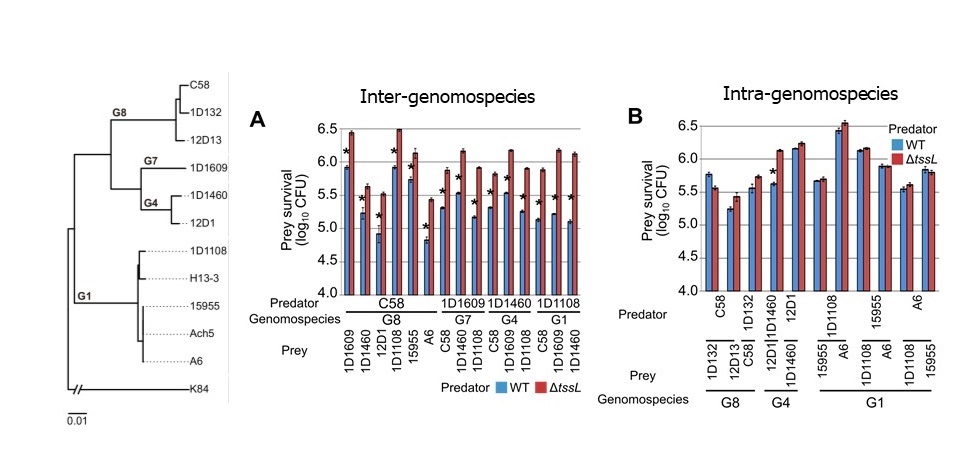[Erh-Min Lai/Chih-Horng Kuo] The effects of natural variation in T6SS and bacteria on competition in host environment
POST:The bacterial type VI secretion system (T6SS) is an anti-bacterial and anti-host nanomachine deployed by many bacteria for bacterial competition and pathogenesis. Since ~25% of Gram(-) bacteria with sequenced genomes encode one to multiple T6SS gene clusters, these T6SS-harboring bacteria must evolve strategies to recognize their own kind from others during interbacterial interactions. The groups of Erh-Min Lai , Chih-Horng Kuo , and Jeff Chang (Oregon State University) have established a collaboration and used members of plant pathogenic Agrobacterium tumefaciens to address this question. By whole-genome sequencing, comparative genomic analyses, and large-scale pairwise interbacterial competition assays in planta, they discovered the importance of evolutionary lineage in interbacterial competition. The data showed that competing pairs at intra-genomospecies levels tended to exert only minor fitness costs regardless of effector-immunity incompatibility, while competing pairs at the inter-genomospecies level mostly exhibited antagonism. These results suggest that, beyond T6SS effector-immunity compatibility, the genetics of the competing strains also the environment in which they are competing can impact competition outcomes. This work is mainly contributed by 1st author Dr. Chih-Feng Wu, a former Ph.D. student/postdoc at Lai lab and currently a postdoc at Change lab and published in the journal Molecular Plant Microbe Interactions (Wu et al., 2019). This work was selected as the “editor pick” of the journal issue and highlighted by news release.
